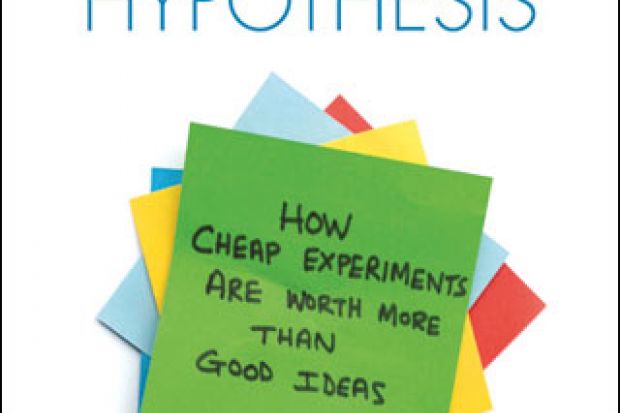Successive governments have exhorted businesses to innovate with a view to increasing firms’ efficiency, effectiveness and growth, and the country’s prosperity. But at the level of an individual firm, this rhetoric may be questioned: why should it innovate? And how? To innovate is to take risks, to venture into areas of unknowns, even unknown unknowns; or at least that is the common understanding. So why do it?
Here, Michael Schrage focuses on large, established multinational businesses such as Walmart and Apple, where innovation is internal to the firm. There seems to be nothing here for the small start-up, the nascent entrepreneur or the niche business. Or is there?
It is not ideas that are important in innovation, Schrage says; instead, it is the implementation of ideas – and the actions taken to do so – that are. This seems on the face of it counter-intuitive. But, he adds, there is nothing more demotivating to employees than being asked to come up with ideas that are not then acted upon. So out with the suggestion box!
His next recommendation is that companies should focus on testing ideas, simply and cheaply, to see if they work. Only workable ideas are worth pursuing. This ensures that large sums are not invested in ideas that ultimately are shelved. This seems such a sensible idea that one begins to wonder why Schrage would put it out there, if it is such good advice? Although he holds fellowships at the Massachusetts Institute of Technology and at Imperial College London, he is primarily a consultant who earns his living by advising companies – a much more lucrative occupation than writing a book. So there must be more to his philosophy than this. How do we do blue-sky thinking? How do/should universities spin out innovations? What advice has he for Schumpeterian industry leaders whose innovations cause disruptive breakthroughs?
Innovative ideas can be blindingly obvious – if only one had thought of them first. But simply having ideas is not what it is about, says Schrage; it is about creating value. It is also about testing those ideas cost-effectively rather than via grand designs and big investment budgets. Using Warren Buffett’s methodology as exemplar, he explains how. So forget the boffins, forget blue-sky research; this approach is about large companies and their bottom line. Nevertheless, one is left wondering whether this methodology should be applied to all innovative thinking.
Schrage exhorts the executive or consultant to “plumb the depths of an organisation’s innovative culture” by observing the reaction to the suggestion that the firm should mount simple experiments to “reality test” supposedly innovative ideas. To marketers it is simple good practice; to a scientist it is pilot testing. Not doing so can be very costly. Hence this book’s real message is about handling resistance to change and new ideas, and about dysfunctional innovation cultures in organisations (and not just the big ones).
Aimed at the practitioner and the MBA student, The Innovator’s Hypothesis is unapologetically prescriptive about how innovative companies should behave. For readers keen to ask some fundamental questions about the nature of innovation, competitiveness or indeed the merry-go-round of the capitalist system, it offers no discussion. But for those for whom it is relevant, this is an interesting read; the argument for conducting lean, simple, cheap experiments to test potential innovations seems commonsensical, but then good ideas often do.
The Innovator’s Hypothesis: How Cheap Experiments Are Worth More than Good Ideas
By Michael Schrage
MIT Press, 256pp, £15.95
ISBN 9780262028363 and 2323031 (e-book)
Published 14 November 2014
Register to continue
Why register?
- Registration is free and only takes a moment
- Once registered, you can read 3 articles a month
- Sign up for our newsletter
Subscribe
Or subscribe for unlimited access to:
- Unlimited access to news, views, insights & reviews
- Digital editions
- Digital access to THE’s university and college rankings analysis
Already registered or a current subscriber? Login





